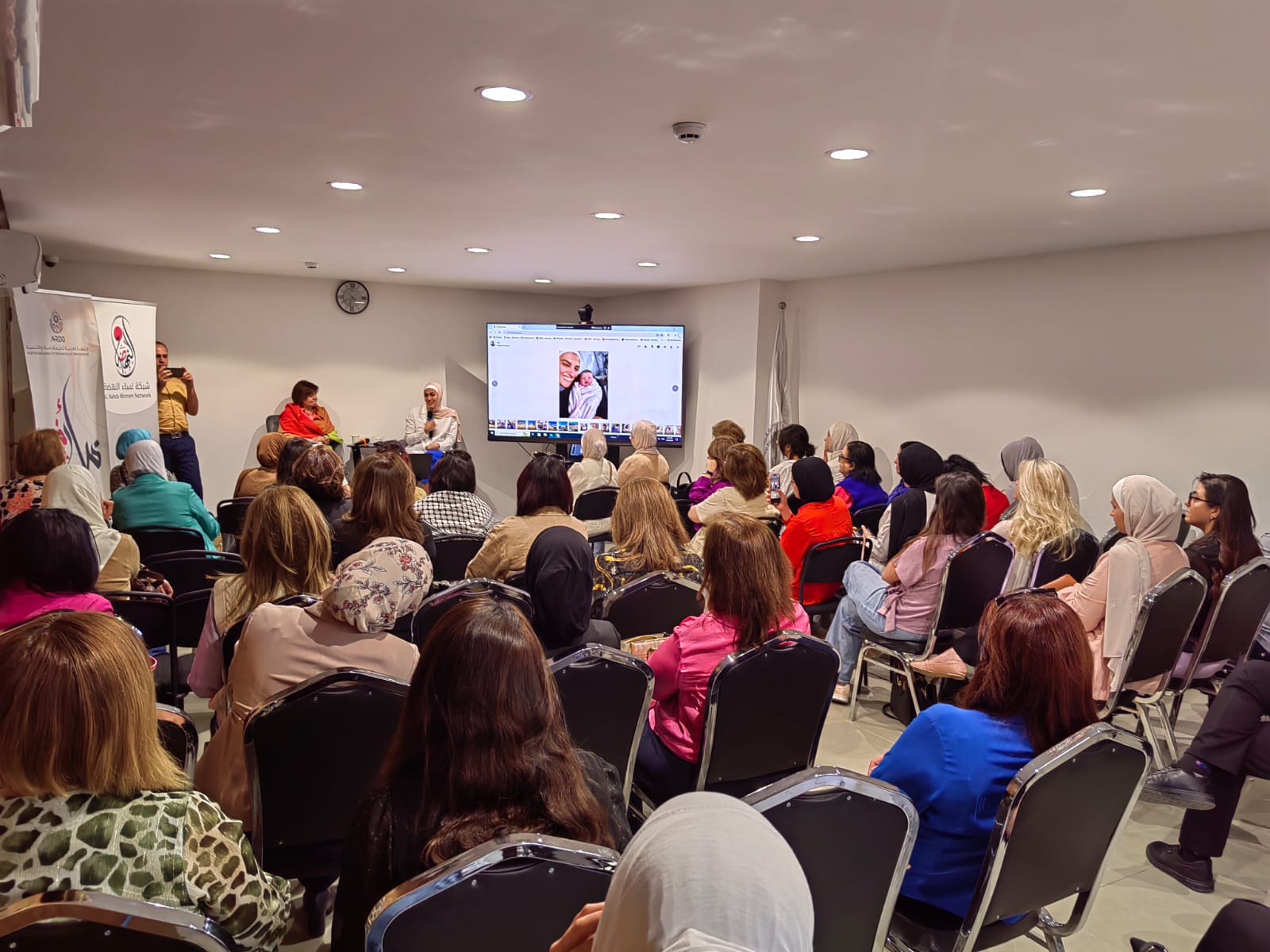More than 200 days into the war on Gaza, the health situation in the Strip is still witnessing a wide state of collapse, which resulted in the destruction of 32 hospitals, while others continue to function only partially, as well as the targeting of shelters, treatment facilities, medical complexes, and other humanitarian problems, which had a heavy toll on all the people of Gaza, especially women, a fact that was reiterated by gynecologist and obstetrician Dr. Aseel Al-Jallad, the first Jordanian and Arab female volunteer to enter Gaza to help heal the wounds of her people.
Dr. Al-Jallad described the health situation during her recent stay in Gaza as she was carrying out her humanitarian duty, pointing out that “the health situation of women in the Strip, especially reproductive health, is significantly deteriorating, and there is a great shortage of female doctors.”
In a meeting organized by Al-Nahda Women’s Network in the Arab Renaissance for Democracy and Development (ARDD), on Wednesday, April 24, 2024, entitled: “Testimony of a Jordanian doctor on the humanitarian situation in Gaza,” and managed by the CEO of Durrat Al-Manal Foundation for Development and Training and a member of the Coordinating Committee of JONAF, Manal Al-Wazani, Al-Jallad maintained that “All international medical support teams go to the south, due to the difficulty of reaching the north of Gaza.”
In turn, Al-Wazani said that “this kind of meetings that are held by Al-Nahda Women’s Network shed light on the distinguished and passionate women of society. And here is Aseel, who began her career as a volunteer and was supportive and motivating to everyone around her, setting the most admirable examples of humanitarian work when she came to treat the women of Gaza.”
Regarding childbirth in Gaza, Al-Jallad stressed that “childbirth in the Gaza Strip takes place without anesthetics, medical tools, or medicines, as the Emirati hospital is the only hospital in Gaza that provides medical services for women, and works at four times its capacity,” indicating that the lack of medical staff in the shelters is caused by the displacement of these cadres from one area to another, which prevents those who remain from practicing their work.
Regarding the situation of pregnant women in general, the specialist pointed out that, in many cases, women had to give birth in homes and shelters in the absence of the basic necessities of childbirth, the most important and simplest of which is hygiene, which exposes the mother and the baby to risks that include heavy bleeding, puerperal fever, infections, as well as contracting viral and bacterial diseases that have increased the rates of infection in mothers and babies and could lead to their death.
Al-Jallad spoke about the experience of one of the mothers during delivery, saying that: “One woman said that she wanted to have more male children in order to compensate for the men and young men killed in the war,” adding that “in a story told by another woman, a baby girl was born inside a tent in one of the shelters, only to pass away days later due to the lack of healthcare in the Strip.”
According to Al-Jallad, one of the most important risks to pregnant women in the Gaza Strip is abortion. The Palestinian Ministry of Health indicates that abortion rates increased by about 20%, with an increase in dangerous premature and cesarean deliveries, with about 60,000 pregnant women, on an average of 180 deliveries per day. About 15% of these women suffer from complications in pregnancy and childbirth that are difficult to treat due to the lack of medical care.
Regarding these challenges, Al-Jallad stressed that there is a high probability of increasing births in unsafe health conditions, which constitutes a serious violation of women’s rights that endangers their lives and the lives of their newborns, as they live in tragic situations during pregnancy and childbirth, and suffer from difficulty in accessing health facilities and following up on their pregnancies due to the lack of medical services and necessary medicines, as well as the severe shortage of sanitary pads they need, which has a negative impact on their bodies.
In conclusion, the participants in the meeting stressed that pregnant women and newborns in Gaza are the most vulnerable groups, so they are in dire need of immediate preventive, therapeutic, and nutritional interventions to save their lives, calling for letting as much life-saving humanitarian support as possible into the Strip, including food, medicine, and fuel, and the need to provide appropriate and additional food for displaced pregnant and breast-feeding women, provide prenatal and postpartum care, and avoid endangering their lives due to the absence of medical care.



